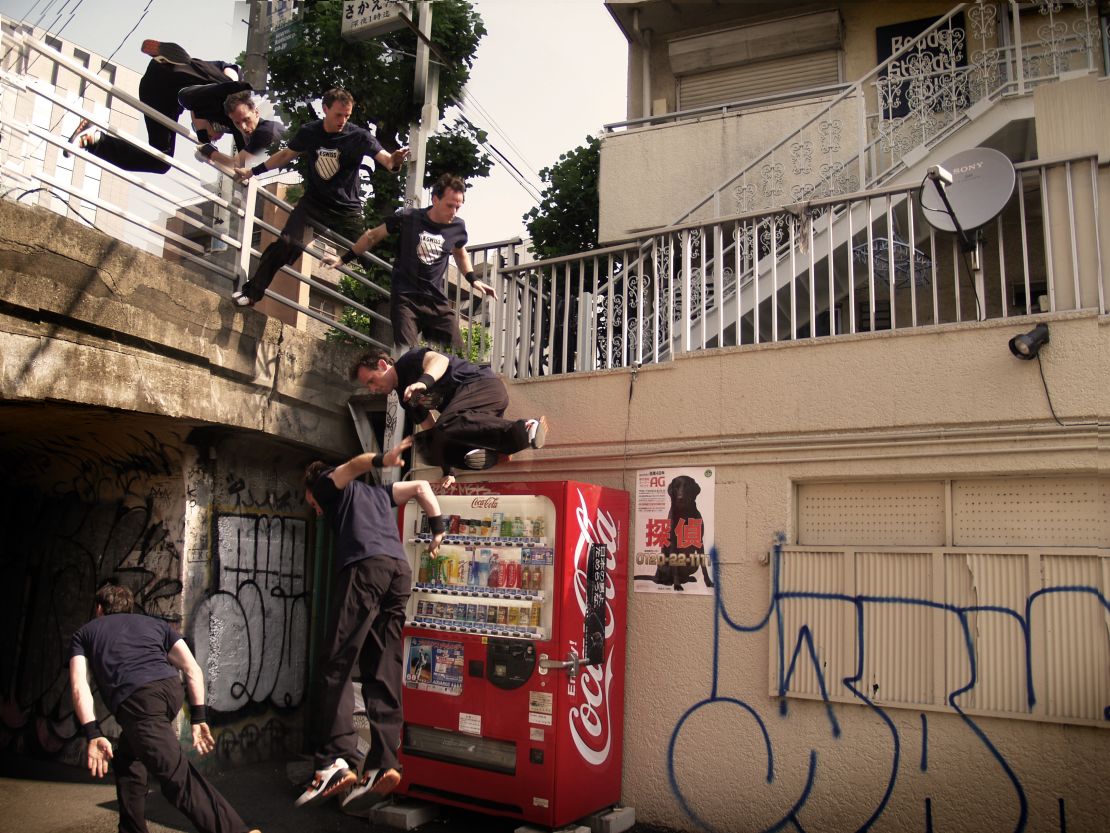Editor’s Note: Vital Signs is a monthly program bringing viewers health stories from around the world.
Story highlights
Sports scientists researching how the brain limits physical performance
Research shows the higher an athlete's perception of effort, the closer it brings them to exhaustion
Mental training could boost performance, say experts
“You fear things because some part of you knows you can do them, and may therefore attempt them” – Dan Edwardes
As the founder and director of Parkour Generations, Dan Edwardes rarely stops attempting things that would scare most people.
Parkour, the “martial art of movement,” involves navigating the urban environment with physics-defying feats, from wall-running to flips and scarcely credible jumps, and Edwardes is among the leading exponents.
Rather than physical prowess, Edwardes puts fear at the heart of the discipline. He reasons that Parkour athletes cannot hope to perform experimental gymnastics over sheer drops without learning to control their fear. If they can, it unlocks a world of possibilities.
“Our natural limits are much further back than people think,” says Edwardes. “The main barrier is perception of what we think we can or can’t do. Parkour makes you face that fear.
“When I first saw people doing it, I thought ‘that’s not humanly possible.’ But I quickly realized it was well within human capability, and I know now we are capable of much more.”
Edwardes has refined methods of psychological and physical preparation to help students work through fear, which he will discuss as a speaker at the Extreme Medicine Expo in London next week.
“Breaking the Jump” is a five-step guide to making a leap of faith.
First comes awareness of and interest in a challenge – “the call of the jump” – then assessing the specific conditions of a site, then through visualization techniques and rituals at the onset of fear and adrenaline, before the jump itself.
By the final stage, the athlete should be in the “zone” – the flow state common to many sports and other activities which enables peak performance. Fear induces an adrenal dump, which can enhance speed, strength and reflexes in an experienced athlete, or reduce a novice to jelly.

“The only way to get through fear is to be exposed to it and become familiar with it, finding ways to get through it and training yourself to manage it,” says Edwardes. “You need to understand how to use it for your benefit rather than be limited by it.”
He believes that greater familiarity with fear allows athletes to keep pushing their boundaries, and functioning in increasingly high-risk situations.
Boot camp for the mind
Sports science is slowly beginning to embrace the possibilities of training the brain to unlock performance gains.
Dr Emma Ross, head of Physiology at the English Institute of Sport, has pioneered the study of neuromuscular function – the relations between brain signals and muscle activity – in endurance performance.
“It was never thought to be a limiting factor in performance – we tended to think that was running out of energy – but now we understand more about the role neuromuscular function plays in exercise tolerance,” says Ross.
If the part of the central nervous system controlled by the brain detects that muscles have deteriorated from fatigue it will inhibit their activity to protect them from further damage. But Ross’s team identified that normal physical training desensitizes the feedback loop, allowing muscles to sustain higher stress.
“We adapted the central nervous system to be OK with not stopping exercise at those (normal) levels, to be more tolerant of high intensity,” says Ross. “In an untrained person the system is quite conservative but shifts as you train.”
The principle can be pushed further. The scientist cites U.S. research that used anesthetic to sever the feedback loop completely. This allowed subjects to exercise close to the point of exhaustion without intervention from the brain.
Ross has also studied the influence of the brain in extreme conditions of heat and cold, and found it to be even more powerful.
“In extreme environments the brain has a very protective role and is the limiting factor for performance,” she says. “It doesn’t allow you to move at a certain speed or pedal at certain power. It’s not traditional fatigue because your muscles tired – they are fine, it’s your brain saying no.”
But again it was possible to build tolerance, and following exposure to extreme environments, test subjects’ endurance improved and enhanced their performance back in normal conditions.
“Perception is the limiting factor”
Dr. Samuele Marcora of the University of Kent gives even more importance to the brain’s role. He has developed a “psychobiological model” for endurance sport, which posits that physical performance is self-regulated and dictated by mental condition.
In this model, perception of effort is the main limiting factor. The higher the athlete’s perception of effort, the closer it brings them to exhaustion.
Marcora has tested the effects of mental fatigue against physical fatigue, and found a similar effect on perception of effort and endurance performance.
“Future training, nutrition and competition strategies need to consider the brain as much as the muscle,” he concludes.
Marcora’s research has subsequently focused on improving performance through altering perception.
A joint research project with the British Ministry of Defense gave two groups of soldiers the same physical task – stationary cycling, and one of them also a mental task – a puzzle. In a subsequent endurance test, the group that had both tasks lasted three times longer.
Researchers concluded the puzzle group had built mental stamina, and developed a new training method – Brain Endurance Training (BET).
“(The method) combines endurance training with specific cognitive tasks to increase self-regulatory capacity and resistance to mental fatigue,” says Marcora.
These discoveries could transform training practices. Marcora is developing BET apps, and techniques for monitoring mood and perceived effort, including the use of EEG scans to track brain activity.
The prospects for progress in physical performance, whether in building endurance and avoiding fatigue, surviving hostile environments, or vaulting from buildings, may depend on finding the tools to manipulate our minds.
Dan Edwardes, Dr Emma Ross and Dr. Samuele Marcora will all speak at the Extreme Medicine Expo in London, October 26 - 29, 2015.


